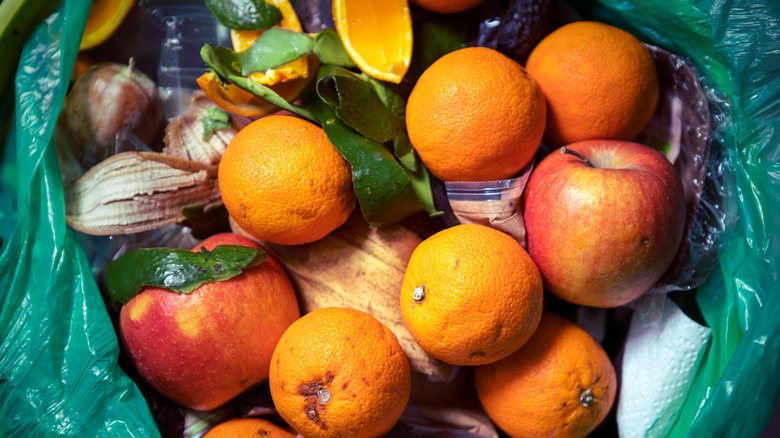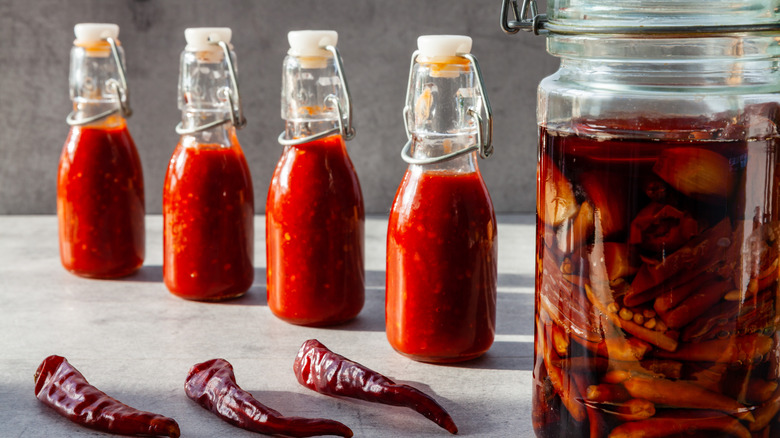Researchers Seek To Provide Ancient Solution For Modern Food Waste Problem
Food waste has negative impacts on food security, the environment, and climate change, according to the USDA, and the agency puts the United States' overall food waste at a discouragingly high estimate: between 30% and 40% of the total food supply. This is a large number when you keep in mind that, when food is wasted, the resources — land, water, labor, and energy — that went into producing, processing, and transporting that food is also wasted (via USDA). The good news is that companies are now trying to come up with ways to combat food waste.
One of these companies is a Danish start-up called Resauce. According to Forbes, Resauce is interested in fighting food waste by focusing on a not-so-new process: fermentation. Of course, people have been using this process for a long time. According to the Economist, archaeological evidence suggests people were fermenting grain into beer as far back as 6,000 years ago! Beyond solving the out of beer equation for our forefathers, fermentation might be one of the keys to answering today's food waste problem.
Using fermentation to turn surplus food into sauces
Resauce was founded by Philip Bindesbøll, a bachelor student at the Department of Food Science at the University of Copenhagen. In an interview posted on the university's website, he posed the question: "Fermentation already plays a big role in many of our foods: beer, milk, meat, so what if we could use the fermentation process as a solution for the huge food waste?" Resauce is looking into how it can use fermentation to save fruit and vegetables. According to Forbes, the startup is trying to ferment surplus food and transform it into items that have a long shelf life, like sauces, syrups, and jams. Those sauces currently in Resauce's lineup include tomato sauce, bean paste, and chili sauce, according to Forbes.
Prior to founding Resauce, Bindesbøll had already done some research in the field. As he explained to UCPH, "Based on my interested in health and cooking, I had investigated fermentation at home." He says he experimented with fermented foods like kefir, yogurt, kimchi, and chili sauce. Apparently, a microbiology lecture he attended really stuck with him. He told UCPH that the lecture discussed preventing pathogen growth in food through fermentation and how to "use fermentation to preserve food in a natural way, without adding preservatives or using high heat treatment."
If Resauce creates a yogurt one day that's tasty, does not use preservatives, and can help solve food waste, we will grab a spoon!

